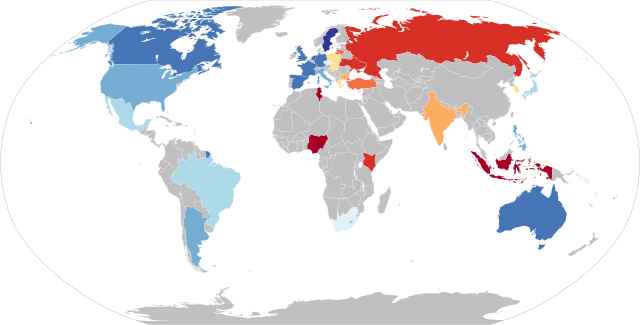Societal attitudes toward homosexuality: Difference between revisions - Wikipedia
 Article Images
Article Images
Content deleted Content added
Line 49: Drawing some connection between homosexuality and anti-nationalism is fairly common, and was used in [[History of gays in Nazi Germany and the Holocaust|Nazi Germany]] and [[Gay rights in Russia|Soviet Russia]] as well. ===The so-called "LGBT civil rights movement"=== Beginning in the 20th century, so-called "[[Gay rights]] movements Many African Americans object to the the civil rights movement being linked to the so-called "gay civil rights movement". Jesse Jackson has said "Gays were never called three-fifths human in the Constitution." Gene Rivers, a Boston minister, has accused gays of "pimping" the civil rights movement. [http://www.blackcommentator.com/110/110_fr_gay_civil_rights.html][http://www.hrc.org/Template.cfm?Section=Home&CONTENTID=17806&TEMPLATE=/ContentManagement/ContentDisplay.cfm]
===Statistics=== | |||